The Lavin Agency Speakers Bureau
A speakers bureau that represents the best original thinkers,
writers, and doers for speaking engagements.
A speakers bureau that represents the best original thinkers,
writers, and doers for speaking engagements.
Slavery fueled the growth of our churches, schools, and institutions. We must face that history if we want to understand—and someday transcend—our racial divide.
“Slavery is more than just history,” says Rachel L. Swarns. “It lives with us, all of us, now.” Schools, churches, and many of our most influential institutions are still deeply entwined with the legacy of racial injustice, and “we need to grapple with that history to find our way forward.” As the author of The 272—an acclaimed addition to our understanding of our national story that landed on TIME‘s Top 100 Must-Read Books—Rachel has prompted a country-wide reckoning into how we can transform our knowledge of the past to concrete action in the present. By revealing the compelling story of the families that were enslaved and sold by Catholic priests to build Georgetown University and the Catholic Church itself, she “advances the conversation and challenges the collective conscience” (The NYT). Through her dynamic, empathetic talks, Rachel offers audiences a fuller picture of slavery’s contemporary legacy. “It speaks to who we are, and how we got to where we are,” she says. “And it’s critical for our understanding of our nation’s racial divide—and for our hopes of one day transcending it.”
The 272 journeys to slavery’s heart of darkness. But it is also the moving human story of some of the people who endured and survived this ordeal, and who have long awaited rediscovery.—The New York Times Book Review
Rachel L. Swarns is an acclaimed journalist, author, and NYU professor who investigates the history of American slavery, examining how we live with this history and how it shapes who we are today. Through her critically acclaimed books and inspiring talks, she challenges us to work to overcome the legacy of racial injustice in our churches, schools, and communities. At a time when powerful politicians are working to prevent us from teaching and learning these stories, her work has never been more urgent.
Rachel’s most recent book, The 272, tells the story of the nearly 300 enslaved people who were sold by a group of America’s most prominent Catholic priests in order to fund what would become Georgetown University. Rachel follows one family through almost two centuries of enslavement, uncovering not only the stories of these forgotten people, but also how the legacy of the slave trade still shapes our institutions—from banks to universities—today. She was interviewed on NPR’s Fresh Air with Terry Gross for her vital work, and the book has met with critical acclaim from The Wall Street Journal, The New York Times, The New Yorker—landing on The New York Times 100 Notable Books, TIME 100 Must-Read Books, Kirkus 100 Best Nonfiction, and Washington Post 50 Notable Works of Nonfiction. The Washington Post writes that “The 272 succeeds not only in its telling of a tragic story. Rachel Swarns centers the experiences of enslaved people owned by the Jesuits for nearly two centuries who remained largely unnamed and unknown until now.”
Rachel is also the author of American Tapestry, which chronicles the history of former First Lady Michelle Obama’s Black, white, and multiracial ancestors, who journeyed from slavery to the White House in five generations. It was ranked as one of 100 Notable Books of 2012 by The New York Times, and as one of the year’s best biographies by Booklist. She also co-authored Unseen: Unpublished Black History from the New York Times Photo Archives.
A longtime reporter and correspondent for The New York Times—and now a contributing writer for that same publication—Rachel has reported from Russia, Cuba, Guatemala, and southern Africa, where she became The Times’s first Black Johannesburg bureau chief four years after the end of apartheid. She was elected to the American Academy of Arts and Sciences in 2024. She is currently an associate professor of journalism at New York University’s Arthur L. Carter Journalism Institute, where she focuses on American slavery and its contemporary legacies.
Her work has been recognized and supported by the National Endowment for the Humanities, the Ford Foundation, the Leon Levy Center for Biography, the Biographers International Organization, the MacDowell artist residency program, and others. In 2023, she was elected to the Society of American Historians. She has appeared on numerous national programs, including NPR, PBS NewsHour, CNN, and CBS This Morning.
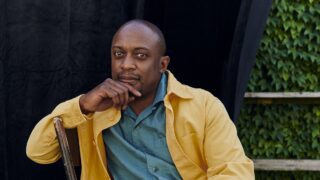
World-Renowned Artist Winner of the US Department of State Medal of Arts Guggenheim Fellow

Founder of Vision & Justice Harvard Associate Professor Bestselling Author of The Rise and The Unseen Truth

Author of Indivisible: How to Forge Our Differences into a Stronger Future Founder and CEO of WatchHerWork

Author of Indivisible: How to Forge Our Differences into a Stronger Future Founder and CEO of WatchHerWork
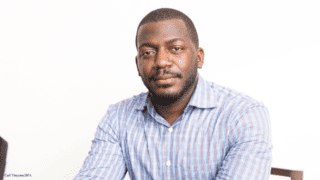
Author of The State Must Provide: The Definitive History of Racial Inequality in American Higher Education Staff Writer at The Atlantic
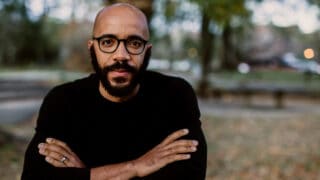
#1 New York Times Bestselling Author of How the Word Is Passed and Above Ground Atlantic Staff Writer
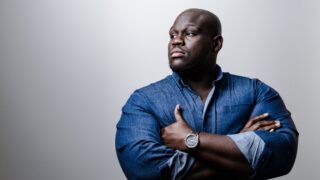
Author, We Refuse to Forget and BLACK MOSES Contributing Writer, The New York Times Magazine Associate Professor, Northeastern University

Associate Professor of Business Economics and Public Policy at Wharton 2024 "Top 40 Under 40" Business Professor Author, Femonomics (Forthcoming)
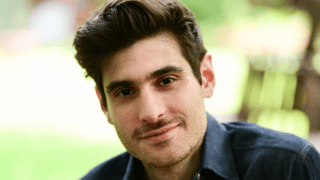
Author, A Brief History of Intelligence AI Entrepreneur and Founder of Bluecore Forbes 30 Under 30 Honoree

Author of Grit, the #1 New York Times Bestseller | Pioneering Researcher on Grit, Perseverance, and the Science of Success

2024 Nobel Prize Winner | 3rd Most Cited Economist in the World | MIT Institute Professor | Bestselling Co-Author of Why Nations Fail and Power and Progress

Pulitzer Prize-Winning Creator of The 1619 Project | Executive Producer of the Emmy Award-Winning 1619 Project Hulu Docuseries | MacArthur Genius
Nike's Former Chief Marketing Officer | Author of Emotion by Design
CEO of The Atlantic | Former Editor-in-Chief of WIRED

“Slavery was the engine that helped to fuel the growth of many of our contemporary institutions: universities, churches, banks, insurance companies,” says Rachel L. Swarns. We can’t pretend this history is totally disconnected from us—we need to face up to it if we want to build a better world and a fairer future.
In this compelling talk, Rachel demonstrates how slavery shaped American institutions and families and how it continues to affect us today. She illuminates her points with powerful case studies from her own reporting: the 272 enslaved people sold by the Catholic Church to save Georgetown University, the New York Life insurance company which sold insurance policies to slave owners so they could recoup 75% of a slave’s value in the event of their untimely death, the family of former First Lady Michelle Obama who journeyed from slavery to the White House in five generations, and much more.
Drawing on 22 years as a full-time reporter for The New York Times and more than a decade of research into slavery and its legacies, Rachel informs and challenges audiences by illuminating the origins of our racial divide and offering a path forward. A practicing Catholic herself, she can speak personally to how people of faith—and anyone else—can work to transcend the legacy of racism in our religious organizations, our communities, and our institutions. Audiences will walk away inspired to transform their newfound understanding of the past to concrete action in the present.